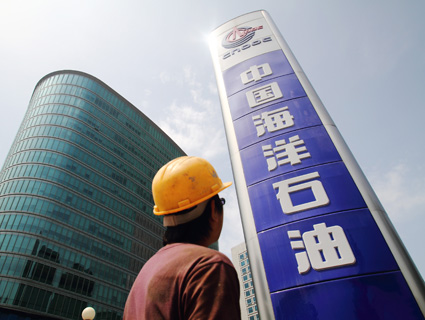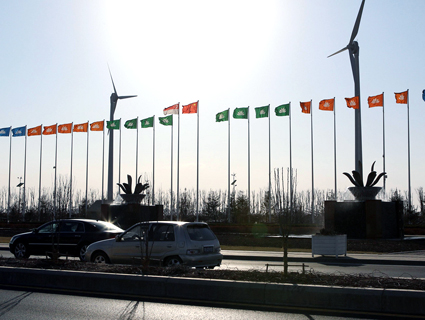Did you hear the one about the Chinese carbon tax? Sorry. Not a joke.
That was one bit of news drowned out by last week’s (understandable) conniption over Chinese computer hacking. China plans to introduce a carbon tax, says state-run news agency Xinhua. That’s right, that great thorn in the side of global carbon reduction treaties, that recalcitrant negotiator and world‘s largest emitter of greenhouse gases, is now on the path to imposing its own tax to tackle dangerous carbon emissions.
Now, we should treat this news with some caution. I say “on the path” because not many other details were forthcoming, and China’s environmental regulations tend to be like cheap Swiss cheese: a bit rubbery and full of holes. Ella Chou, an analyst for Brookings and a clean-energy consultant, points out in this great post that the tax is “puny,” and local governments may still try to skirt it:
Local governments would continue to come up ways to give industries tax rebates and subsidies to attract them to their own jurisdictions, so the effect of the environmental tax or the carbon tax on the industries would be negligible.
Still, China’s decision deals a powerful blow to the oft-stated rhetoric that the United States must wait for China before bringing domestic climate legislation to the floor of Congress. James Fallows makes this point at Climate Desk partner, The Atlantic:
Chinese officials have long used U.S. inaction on climate and carbon-tax issues as a rationalization for not taking steps of their own. On average, we’re still quite a poor country, the spokesmen would say. If the rich U.S. can’t “afford” to deal with emissions, how could we? Now the country is taking this carbon-tax step for reasons of its own reasons—as a way to deal with pollution and as another step in un-distorting the economy. But as a bonus it gets talking points to prod the US to do its part.
The basic message: It’s small, and we’ll have to wait to see what the whole package will look like. But it’s action. So it may be time to update those action-resistant talking points, guys.
















